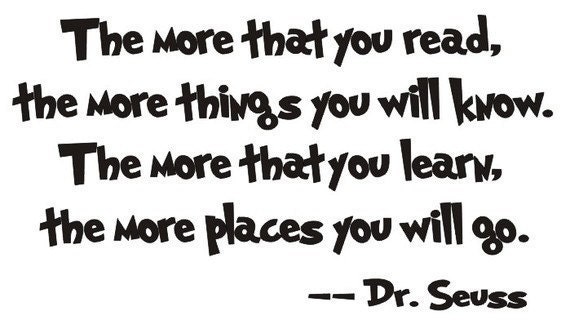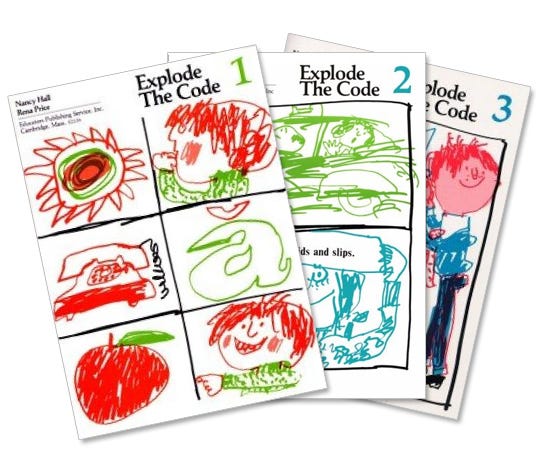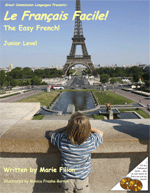"We dole out lip-service to the importance of education--
lip- service and, just occasionally, a little grant of money;
we postpone the school-leaving age, and plan to build bigger and better schools;
the teachers slave conscientiously in and out of school hours;
and yet, as I believe, all this devoted effort is largely frustrated,
because we have lost the tools of learning,
and in their absence can only make a botched and piecemeal job of it."
-Dorothy Sayers, "The Lost Tools of Learning"
So far this week I have made only a little progress on my large list of books that I want to read in order to better understand my choices when it comes to educational styles. The first article I read was Dorothy Sayers "The Lost Tools of Learning," presented by her at Oxford in 1947.
What struck me initially was that her understanding of what education had become sixty-five years ago is true today, if not more so. She questions whether it is natural that "when the proportion of literacy ... is higher than it has ever been, people should have become susceptible to the influence of advertisement and mass propaganda to an extent hitherto unheard of and unimagined." I wonder what she would think now think, with the technology boom of the 2000s allowing every child to have access to said "mass propaganda" at his or her whim? She also states that this problem, coupled with modern educational methods, produces a graduate who "is less good than he or she might be at disentangling fact from opinion and the proven from the plausible."
She speaks specifically that schools no longer teach children to think, but rather "subjects," and because of this, "intellectual skills bestowed upon us by our education are not readily transferable to subjects other than those in which we acquired them." She goes further by stating that because of the advancement in technology (remember, this is 1947), because of this lack in their education, when students are constantly battered by words, "they do not know what the words mean; they do not know how to ward them off or blunt their edge or fling them back; they are a prey to words in their emotions instead of being the masters of them in their intellects." Our current culture has found a way to combat this, though it is a poor one -- society has drastically reduced the level of education needed to both communicate and understand the media, so far that many people not only use poor grammar and "text-speak" in their written communications, but actually supplement their spoken communication as well. I am not ROTFL; I am horrified.
So far in the article, I agree wholeheartedly with Sayers' judgements. One of the reasons I am second-guessing public school for SC is because my recent experiences (and those of our friends) has left me to wonder whether SC will develop into her "best" self if left to the devices of the Texas school system. In fact, as I began to look back on my own educational career, much of the problems Sayers points out that have occurred under the modern educational system I, myself, avoided because my parents pushed me to ask questions, and when the answers were not found at school, I continued to look for them on my own by reading. However, I am very much aware that SC is not me, and I do not really want to just take my chances that she does well for herself.
The remainder of the article Sayers breaks down her ideas for classical education, what she calls the Trivium. While modern education is subject-focused, Sayers states that "medieval education concentrated on first forging and learning to handle the tools of learning." It consists of three stages: Grammar, Dialectic, and Rhetoric. The Grammar stage is based around learning language; the Dialectic stage around how to use the language, defining terms and making accurate statements; the Rhetoric stage around expressing himself through language. For ease of quick-reading, I will summarize each stage through a bulleted list.
GRAMMAR (approx. age 9-11)
- the best grounding for education is the Latin grammar, which should be begun as early as possible
- observation and memory are most active, so anything and everything which can be committed to memory should be memorized, specifically through recitation
- students should learn a contemporary foreign language (French or German)
- focus on reading classical stories (myths, legends, etc) in poetic and narrative forms
- learn the dates, events and personalities of history and geography
- come to identify and name scientific specimens of "natural philosophy"
- memorize the facts of math, like multiplication tables, and recognize geometrical shapes, which will lead naturally to addition and subtraction
- become acquainted with the story of God and Man in outline
DIALECTIC (approx. age 12-14)
- introduce formal logic, the art of arguing correctly
- concentrate language lessons on syntax and analysis, as well as the history of language
- focus on reading essays, arguments and criticisms, as well as attempting to write the same
- lessons should take the form of debates, and include dramatic performances rather than recitation
- advanced forms of arithmetic, algebra and geometry should be introduced as a sub-department of logic
- history should be discussion based, focusing on constitutional history and ethics
- focus to include events from student's daily life as subject of discussion and argument
RHETORIC (approx. age 14-16)
- student needs the freedom to learn what they feel they can "specialize" in
- literature should be focused on appreciation rather than criticism
- writing should be focused on self-expression rather than argument
- "subjects" will be difficult to separate
- Latin grammar may be dropped; focus can be turned to more modern languages
- each student should learn to do one or two things very well, but continue other subjects so as to continue understanding the inter-relation of all knowledge
Sayers sums up her arguments for the Trivium by mentioning that parts of this medieval method can still be seen in modern education, but states that "however firmly a tradition is rooted, if it is never watered, though it dies hard, yet in the end it dies." She believes in order to restore our civilization to its high point, education must return to these medieval roots.
While I definitely agree with Sayers' assessment of modern education as "an educational structure that is built upon sand," at this point I do not necessarily agree with the menu she puts forth specifically to fix the problem. I personally understand that much of classic writing cannot be translated perfectly into English, but I do not at this point see a need for the study of Latin. I think a student of the Rhetoric stage can be taught the mechanics of building a good argument based on the styles of the classical writers/orators without him or her actually reading the works in the original Latin. I agree that young children are memorization sponges and should be introduced to as many facts and stories from history, science, literature and the like, as well as mathematical facts, as early as possible, but I think that this plan needs to be tweaked for each individual child. I wonder how my probably-gifted child fits into this plan, especially since we are starting semi-formal schooling at age four.
I also think that children of all stages should be familiar with all forms of writing, and that well-written modern works have as much to offer as many of the classics. However, the onus is on the parent to read and decide which works those may be, and if a parent lacks understanding in this area, it may be difficult. I also disagree in that I think formal logic can be introduced as early as the grammar stage, as long as the parent/teacher has a sound understanding of formal logic. How do you talk to your child, especially when explaining to him "why?" Do you use logical arguments to model, or do you say "because I am the mom/dad" and vague things of that nature?
I do like that the Rhetoric stage allows for much personal choice by the student, because if a student has a solid background in the basics of every subject, he should be able to choose what interests him and excel rather than continue to sit through "survey style" courses that offer only remedial knowledge to fill in the gaps. I think the only reason schools in Texas continue to do it the latter way is because students have so many gaps from missing information during the learning years when "subjects" were poorly taught, due, honestly, to the required standardized testing being much of the focus at those ages. There will be students who simply test poorly and should be helped with "tricks" and whatnot, but to turn every classroom into a test-review center, eschewing actual knowledge in lieu of only what is on the test, has created an educational farce, one that I am loathe to participate in.
To further my study of educational styles, I should either be reading "The Great Conversation" by Robert Hutchins or The Paideia Proposal: an educational manifesto by Mortimer Adler next, depending which looks more enticing at the moment. Depending on how strongly I feel about each, I may post a review of each of the works, or simply a general review of my understanding of classical education.
If anyone has any suggestions, advice or opinions about anything I have posted here, please comment!
**This post contains affiliate links. Please read my disclosure statement.


























